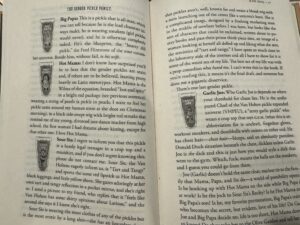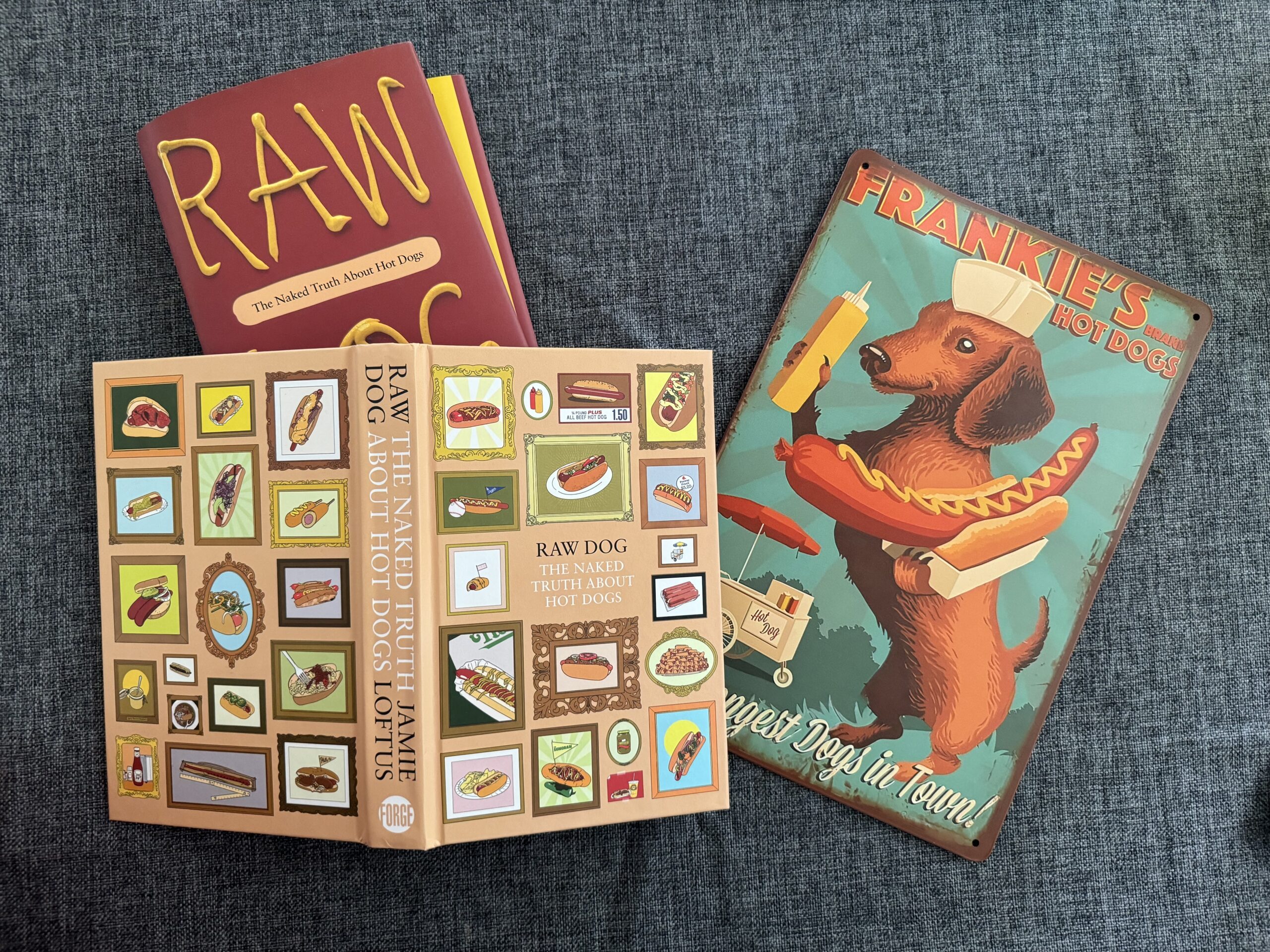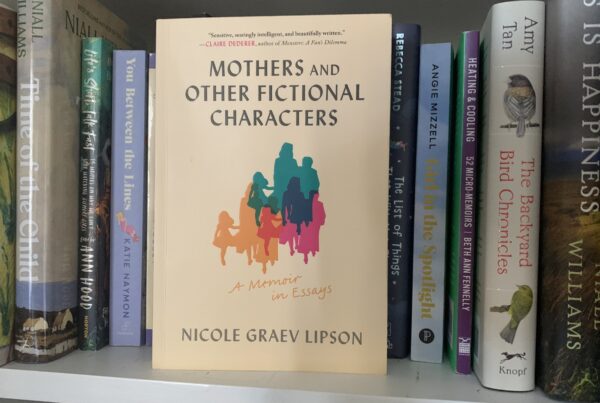When I tell people I read–and loved–a book about hot dogs, their initial reactions are furrowed brows followed by either “What?” or “Why?” I get it–not only do I not eat meat, but it’s a weird subject to read about, much less write about. Writer, comedian, and podcast host Jamie Loftus is well aware of the odd nature of her subject. Not many people discuss hot dogs. As she writes in her opening, “For a piece of Americana that virtually everyone has been forced to eat in celebration of European colonialism, there is stunningly little written about hot dogs in detail.” But I’ll be honest–any memoir that mentions Americana, hot dogs, and colonialism in the same breath is going to hook me.
And that’s exactly what Raw Dog is–a memoir as well as an investigation. As Loftus writes, “This is a story about the summer of 2021, when everyone decided the plague had ended even though people were still dying, the year Americans had grown so nostalgic for something bad and familiar to them while locked inside that hot dog sales leapt by 100 percent. This is a story about looking for a perfect hot dog and never finding it (spoilers ahead!), and you should know this trip doesn’t end well for anyone. Did I mention there were two of us at the beginning? Well, there aren’t now.” Despite all that, Loftus still loves (really loves) hot dogs.
With each stop on her cross-country road trip across America, Loftus shares insight into the (sometimes disgusting, often despicable) meatpacking practices that go into making America’s favorite tubular meat. And as she makes clear when discussing the Costco hotdog deal–$1.50 for a Kirkland Signature all-beef hot dog and a 20-ounce soda with refill–any meats that are cheap and delicious come with an ethical price, such as terrible working conditions, especially during COVID-19 times. She investigates Lincoln Premium Poultry, which pressured poor, immigrant workers to come to work without proper protection. Of course, all meatpacking places that provide hot dogs refused to let Loftus tour them.
Angry reviewers on Goodreads label Loftus “a socialist” (as if that’s a bad thing) because she brings up politics and uncomfortable truths. Perhaps they were horrified to learn about the sexism inherent in the famous Nathan’s Hot Dog Eating Contest (did you even know there was a women’s one?), or issues such as police brutality. For example, Black-owned Ben’s Chili Bowl in Washington DC serves both the police and their Black community. As Loftus remarks, “The company line is that Ben’s Chili Bowl survived every wave of challenges on U Street through good product and a shrewd eye for their community of interest. This is undoubtedly true, but their sixty-five-year endurance also required navigating and sometimes appeasing the forces that oppressed their community–after the crack cocaine panic subsided, the business stayed afloat as the DC Metro train line swept through the U Street neighborhood in the 1990’s, decimating several more Black-owned businesses. Ben’s solution? They fed the construction companies displacing the competition.”
I don’t mean to make this book sound all dire and doomsday. Here’s the thing: it is so, so, so funny! So funny that I plan on listening to Loftus’ podcast. Just read her descriptions of the Gender Pickle Family she meets after surviving her stay at “Meth Haunted House,” a story that had me laughing so hard I woke my kid up.

That’s the brilliance of Loftus’ work. She can make you cry with laughter when discussing her own personal shortcomings or the oddities of American civilization or cry with depression when providing insight on the politics that surround a national food. It’s an emotional rollercoaster, in all the best ways. Just like her road trip across America, you’re glad for the journey you took with her.




